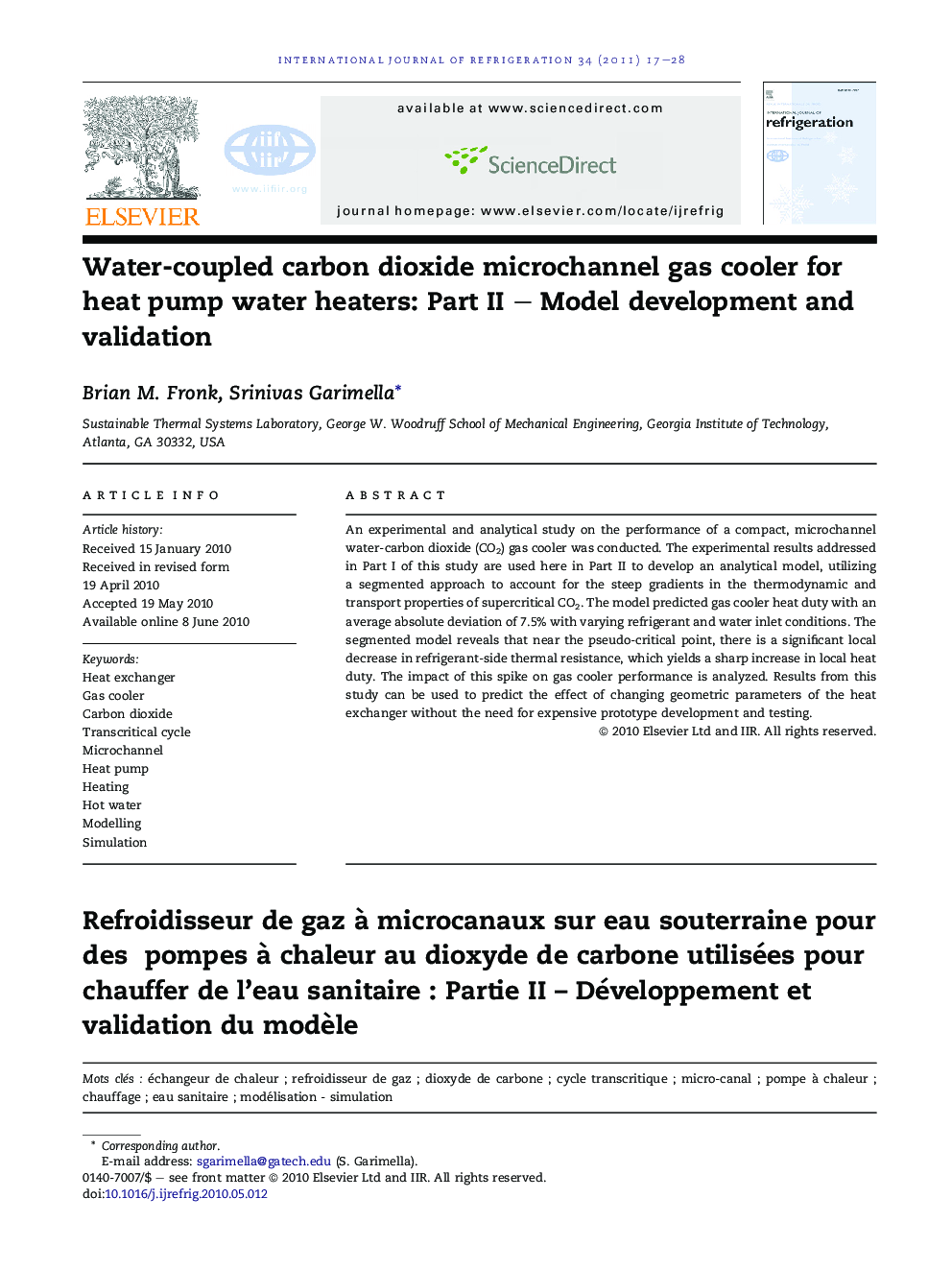| Article ID | Journal | Published Year | Pages | File Type |
|---|---|---|---|---|
| 787275 | International Journal of Refrigeration | 2011 | 12 Pages |
An experimental and analytical study on the performance of a compact, microchannel water-carbon dioxide (CO2) gas cooler was conducted. The experimental results addressed in Part I of this study are used here in Part II to develop an analytical model, utilizing a segmented approach to account for the steep gradients in the thermodynamic and transport properties of supercritical CO2. The model predicted gas cooler heat duty with an average absolute deviation of 7.5% with varying refrigerant and water inlet conditions. The segmented model reveals that near the pseudo-critical point, there is a significant local decrease in refrigerant-side thermal resistance, which yields a sharp increase in local heat duty. The impact of this spike on gas cooler performance is analyzed. Results from this study can be used to predict the effect of changing geometric parameters of the heat exchanger without the need for expensive prototype development and testing.
